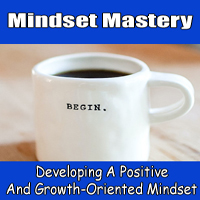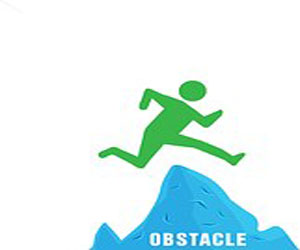


Unlocking Your Full Potential

Empowerment through mindset transformation is a process that holds the key to unlocking your full potential and reshaping the course of your life. Your mindset is the lens through which you view the world, and by deliberately shifting it, you can open up a world of possibilities, self-discovery, and personal growth.
The Power Of Mindset Transformation: Your mindset, whether fixed or growth-oriented, significantly influences your thoughts, actions, and ultimately, your outcomes. By acknowledging the power of your mindset and understanding its role in shaping your life, you take the first step towards empowerment.
Overcoming Limiting Beliefs: One of the most significant barriers to personal growth is the presence of limiting beliefs. These beliefs are self-imposed restrictions that often result from a fixed mindset. Through mindset transformation, you can identify and challenge these beliefs, replacing them with empowering and constructive ones.
Resilience And Adaptability: Mindset transformation fosters resilience and adaptability. It equips you to bounce back from setbacks, view failures as learning experiences, and adapt to change more effectively. This newfound resilience allows you to tackle challenges with confidence.
Confidence And Self-Esteem: As your mindset shifts, your confidence and self-esteem grow. You begin to believe in your abilities, which, in turn, empowers you to take on new opportunities and challenges. A positive mindset transformation can significantly boost your self-worth.
Goal Setting And Achievement: A transformed mindset enables you to set ambitious, achievable goals and work diligently towards them. You stop being deterred by the fear of failure and instead focus on the process of learning and growth.
Optimism And Positivity: Empowerment through mindset transformation brings with it a more positive outlook on life. You start to see setbacks as stepping stones to success, focusing on solutions rather than problems. This newfound optimism attracts positive people and circumstances into your life.
Mindfulness And Self-Awareness: Transformation of your mindset often involves heightened mindfulness and self-awareness. You become more attuned to your thoughts and emotions, allowing you to make better choices and respond thoughtfully to situations.
To initiate empowerment through mindset transformation, consider the following steps:
Self-Reflection: Start by identifying your current mindset. Are you operating from a fixed mindset that resists change, or do you already have a growth-oriented mindset? Self-awareness is the first step towards transformation.
Challenging Beliefs: Identify limiting beliefs that may be holding you back and challenge them. Ask yourself why you believe these things and explore how they might be outdated or inaccurate.
Positive Self-Talk: Replace negative self-talk with positive affirmations. Consciously choose to speak to yourself in a more empowering and constructive way.
Learn Continuously: Develop a hunger for learning and personal growth. Read books, take courses, seek out mentors, and explore new experiences to expand your horizons.
Seek Support: Consider seeking the guidance of a mentor, coach, or therapist who can help you navigate the process of mindset transformation.
Empowerment through mindset transformation is a profound journey that can lead to a more fulfilled and successful life. By recognizing the power of your mindset and actively working to shift it in a positive, growth-oriented direction, you empower yourself to overcome limitations, set and achieve ambitious goals, and embrace a life filled with endless possibilities. Your potential is waiting to be unlocked through the transformative power of your own mind.
The Journey Within Through Solitude
 Solitude is not synonymous with loneliness or isolation; rather, it is a deliberate and purposeful choice to spend time alone, free from external distractions. It is in these quiet moments that we have the opportunity to connect with our inner selves and uncover the wellspring of inner peace that often remains hidden beneath the surface.
Solitude is not synonymous with loneliness or isolation; rather, it is a deliberate and purposeful choice to spend time alone, free from external distractions. It is in these quiet moments that we have the opportunity to connect with our inner selves and uncover the wellspring of inner peace that often remains hidden beneath the surface.
Finding inner peace through solitude begins with the act of slowing down. In a world that glorifies busyness, it can be challenging to pause and embrace the stillness. However, when we create a space for solitude, we allow ourselves to step away from the frantic pace of life, unplug from technology, and escape the constant noise. This simple act of slowing down is the first step towards finding peace within.
Solitude provides the environment for deep self-reflection. As we sit in the silence and listen to our thoughts and feelings without the interference of external influences, we gain insight into our own inner world.




A Journey Of Inner Fulfillment
 The soul is often associated with the intangible and spiritual part of our being. While interpretations of the soul may vary across different belief systems and philosophies, nurturing the soul is a universal concept that transcends religious and cultural boundaries. It involves looking within to explore our values, beliefs, and passions, and it often goes hand in hand with self-discovery.
The soul is often associated with the intangible and spiritual part of our being. While interpretations of the soul may vary across different belief systems and philosophies, nurturing the soul is a universal concept that transcends religious and cultural boundaries. It involves looking within to explore our values, beliefs, and passions, and it often goes hand in hand with self-discovery.
One of the fundamental aspects of nurturing the soul is self-awareness. When we take the time to reflect on our beliefs, values, and the core principles that guide our lives, we deepen our understanding of ourselves. This self-awareness provides a roadmap for personal growth and allows us to align our actions and choices with our authentic selves.
Nurturing the soul can be achieved through various practices and experiences, including meditation, mindfulness, journaling, spending time in nature, engaging in creative pursuits, or simply finding moments of stillness and solitude. These practices enable us to connect with our inner world, access our intuition, and gain insights into our true desires and aspirations.
Solitude plays a crucial role in nurturing the soul. In the quiet moments of solitude, we can escape the external noise and distractions that often drown out our inner voice. Solitude allows us to delve into the depths of our consciousness, explore our thoughts and feelings, and find a sense of peace that transcends the chaotic pace of modern life.
Keys To Self-Awareness And Personal Growth
 The Role Of Self-Awareness
The Role Of Self-Awareness
Self-awareness is the ability to observe and understand one's own thoughts, emotions, and behaviors. It is a vital component of personal growth because it enables individuals to recognize their behavioral patterns and make conscious choices about how they respond to different situations.
The Significance Of Recognizing Behavioral Patterns
Improved Relationships: Understanding your own behavioral patterns allows you to better understand the behaviors of others. This insight can lead to improved communication and empathy in your relationships.
Effective Problem-Solving: Recognizing patterns in your decision-making process can help you make more informed and effective choices. Identifying past mistakes can prevent their repetition.
Stress Management: Knowing how you typically react to stress can help you develop healthier coping mechanisms. It can lead to a reduction in stress-related health issues.
Personal Growth: Identifying limiting or destructive behavioral patterns is the first step toward personal growth. Once you're aware of these patterns, you can work on changing them.
The Key Factors To Achieving Your Goals
 2. Resilience And Perseverance
2. Resilience And Perseverance
Resilience is the ability to bounce back from setbacks and continue pursuing your goals. Success often involves facing challenges, failures, and adversity. Developing resilience and the willingness to persevere through difficult times is essential. Remember that failure is a stepping stone to success.
3. Self-Discipline
Self-discipline is the ability to stay committed to your goals and take consistent action, even when motivation wanes. It involves making sacrifices and maintaining a strong work ethic. Cultivating self-discipline helps you overcome procrastination and stay on track.
4. Continuous Learning
Successful individuals are lifelong learners. They embrace opportunities for growth and improvement. Keep acquiring new knowledge and skills related to your field and personal development. Continuous learning enables you to adapt to changing circumstances and remain relevant in your endeavors.
5. Resilient Mindset
A resilient mindset, often described as a growth mindset, involves viewing challenges as opportunities for growth and learning. It's the belief that abilities and intelligence can be developed through effort and experience. A resilient mindset enables you to embrace setbacks and learn from them, making you more adaptable and optimistic.
6. Networking And Relationships
Building and maintaining strong relationships are critical to success.
Embracing Self-Confidence And Personal Growth
 The Impact Of Doubt:
The Impact Of Doubt:
Inaction: Excessive doubt can paralyze us, preventing us from taking necessary actions or making decisions.
Undermined Confidence: Pervasive doubt can erode our self-confidence and self-esteem, making it difficult to believe in our abilities and pursue our goals.
Missed Opportunities: Doubt can lead to missed opportunities for personal and professional growth, as we hesitate to take risks or step outside our comfort zones.
Strategies For Overcoming Doubts:
Self-Awareness: The first step in overcoming doubts is to recognize and acknowledge them. Self-awareness allows us to understand the source of our doubts and work toward addressing them.
Challenge Negative Thoughts: When you experience self-doubt, challenge the negative thoughts that accompany it. Ask yourself if your doubts are based on facts or if they are simply irrational fears.
Positive Self-Talk: Replace self-criticism with positive and encouraging self-talk. Affirm your abilities and remind yourself of past successes.
Set Realistic Goals: Break down your goals into smaller, achievable steps. This can help build confidence by allowing you to see progress along the way.
Seek Support: Share your doubts with trusted friends, family members, or mentors. They can provide valuable perspective and support to help you overcome doubts.
Overcoming Fear And Embracing Growth
 Fear Of The Unknown: One of the primary reasons for resisting change is the fear of the unknown. Human beings have a natural tendency to seek comfort and stability. Change disrupts this sense of stability, triggering anxiety about what the future holds. The uncertainty of change can be paralyzing, causing individuals to resist it.
Fear Of The Unknown: One of the primary reasons for resisting change is the fear of the unknown. Human beings have a natural tendency to seek comfort and stability. Change disrupts this sense of stability, triggering anxiety about what the future holds. The uncertainty of change can be paralyzing, causing individuals to resist it.
Comfort In Familiarity: People often become accustomed to their current routines, environments, and relationships. Familiarity provides a sense of comfort and security. Change, even when positive, means stepping into unfamiliar territory, and this can lead to resistance as individuals gravitate towards what they know.
Fear Of Failure: Change often involves taking risks and trying new things. The fear of failure can discourage individuals from embracing change. They may worry that the new path they're embarking on will not be successful or that they lack the necessary skills to adapt to the changes.
Loss Of Control: Change can make people feel like they're losing control over their lives. The loss of control is unsettling, leading to resistance. Individuals may prefer the feeling of being in charge and resist any changes that disrupt their perceived control over their circumstances.
Emotional Attachment: Emotional attachments to people, places, or routines can create resistance to change. Leaving behind what one is emotionally attached to, even if it's no longer beneficial, can be emotionally challenging.
Embracing The Transformative Power Of Adaptation
 One of the keys to thriving through change is resilience. Resilience is the ability to bounce back from adversity and adapt to new circumstances. It's about not just weathering the storm but using it as an opportunity for growth. Resilient individuals view change as a chance to learn, improve, and become stronger.
One of the keys to thriving through change is resilience. Resilience is the ability to bounce back from adversity and adapt to new circumstances. It's about not just weathering the storm but using it as an opportunity for growth. Resilient individuals view change as a chance to learn, improve, and become stronger.
Moreover, embracing change with a positive mindset is essential. Instead of focusing on what is lost, concentrate on what can be gained. Change often opens new doors, allowing you to explore uncharted territories, acquire new skills, and broaden your perspective. This positive approach can turn a challenging transition into a fulfilling adventure.
To thrive through change, it's vital to have a sense of purpose. Having a clear sense of your goals and values can provide a guiding light during uncertain times. When you understand your purpose, you're more likely to make decisions that align with your long-term vision, even when facing obstacles and transitions.
Strategies are also crucial in thriving through change. These can include setting clear goals, breaking the change into smaller, manageable steps, and seeking support from others who have experienced similar transitions.
A Delicate Harmony
 Defining Success And Balance
Defining Success And Balance
Before delving into the strategies for achieving this harmonious balance, it's essential to define what success and balance mean to each person. Success is a deeply personal concept that can encompass career accomplishments, financial stability, personal growth, and fulfillment. Balance, on the other hand, relates to maintaining a proportionate distribution of time and energy between work, personal life, and well-being. Your definitions of success and balance may differ from those of others, and that's perfectly okay.
Prioritization And Goal Setting
Achieving success and balance begins with effective prioritization and goal setting. Clearly define your short-term and long-term goals for your career, personal life, and well-being. By establishing your priorities and identifying what truly matters to you, you can allocate your time and resources more efficiently. Remember that not all goals are of equal importance, so it's crucial to differentiate between what is urgent and what is essential.